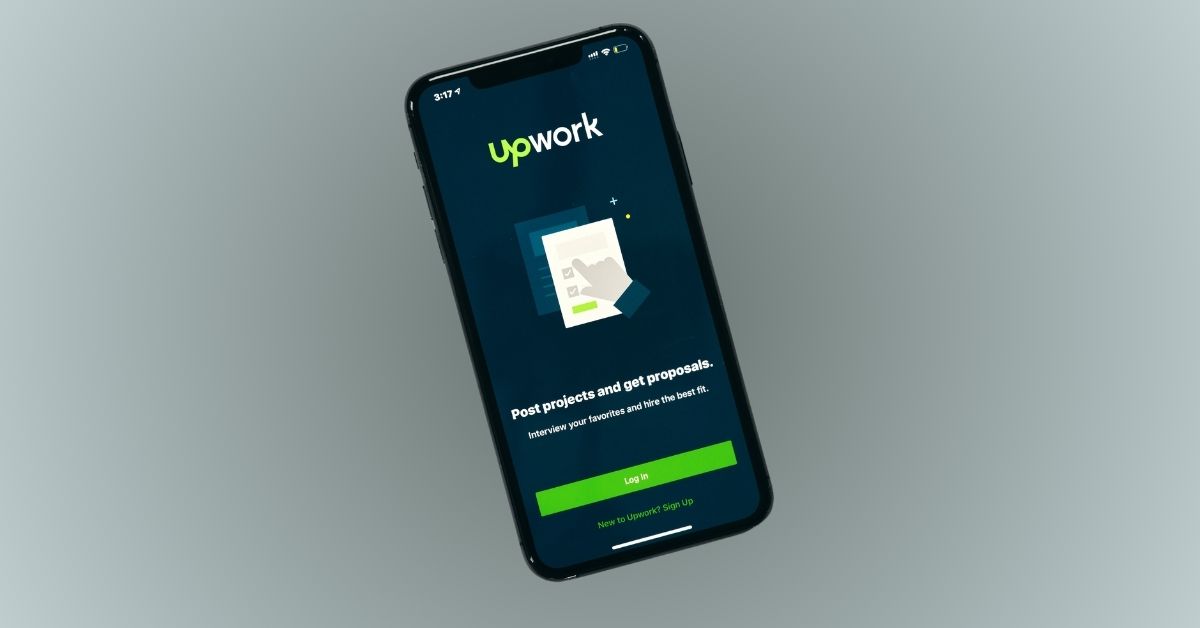7 Upwork Alternatives in 2024: Are They Even Worth It?
We all know why you’re here.
With the constant job postings from scammers, the AI-generated proposals from competitors, and Upwork itself just sucking out every last cent that you have just so you can send out your last proposal that probably won’t see any light of day from the employer’s end… Finding jobs on Upwork has never been more dreadful, especially now—and it’s infuriating to say the least.
If you’re here because you just can’t take Upwork anymore, then you’re definitely on the right article. We’ll cover all the competitors that Upwork has and review if they’re worth your time or not.
Why Look for an Upwork Alternative?
First things first. Let’s go through the top reasons why freelancers are considering leaving Upwork.
Those Pesky Fees and the Fine Print
The first big hurdle? The fees. Upwork takes a cut from our earnings, starting at 20% for the first $500 with a client. That’s a hefty slice of our hard-earned cash.
Plus, they’ve got this new rule where if you want to take your client relationship off Upwork, it might cost you up to $50,000 due to non-circumvention fees. Feels a bit like being stuck between a rock and a hard place, right?
Getting Your Foot in the Door is Tough
Getting your profile approved on Upwork can be a real trial. They’re limiting freelancer numbers in crowded fields, which means even top-notch profiles are getting turned away.
If you’re new to the platform, breaking in is becoming tougher by the day. It’s like showing up to a party where there’s already too many guests. And once you’re in, the competition for jobs can drive prices way down, making it hard to earn what you’re truly worth.
Feeling Out of Control
Have you ever felt like you’re just a small cog in a big machine? That’s often how it goes on Upwork. There’s a lack of direct communication early on with clients, which means negotiating the best terms for our work can be tricky.
Plus, transparency isn’t always Upwork’s strong suit, especially when it comes to disputes or understanding why certain job decisions are made. It can leave us feeling a bit in the dark and, honestly, a bit powerless.
With all of these said, let’s now talk about the viable alternatives that you can consider using aside from Upwork.
What are the Best Alternatives to Upwork?
Fiverr, PeoplePerHour, and Guru are the most well-mentioned competitors to Upwork. You can check each of these if you’d like, but to get a better idea of what they offer in an overview, then better scroll through the list below:
1. Fiverr
Known as a significant alternative to Upwork, Fiverr is preferred for its vast array of services ranging from graphic design to digital marketing tasks. It operates on a gig-based system, where freelancers offer specific tasks at set prices.
Why Consider Fiverr
Need something done fast and without a hassle? Fiverr’s your go-to. Prices are upfront, so no haggling or surprises. It’s perfect for quick tasks when you’re tight on budget but still want quality work. You pick what fits, pay the listed price, and you’re set. Simple, right?
2. Guru
Guru feels like it’s built with us freelancers in mind. Flexible payments? Check. A variety of projects from tech to creative? Double-check. And the more you stick around, upgrading your membership, the less you pay in fees.
Why Consider Guru
If you like choices—hourly, fixed-price, or maybe a mix—Guru’s your spot. It’s structured to reward loyalty with lower fees, which means more money in your pocket over time. Plus, there’s a diverse range of projects, so it’s less likely you’ll get stuck in a niche unless you want to.
3. Freelancer.com
This giant marketplace is kind of like the wild west of freelancing. There’s something for everyone with its vast number of projects and direct communication tools.
Why Consider Freelancer.com
Freelancer.com is massive, which means more job opportunities. But here’s the real kicker: the platform allows for more direct negotiation and project management than you might find on Upwork. Just watch out for those extra fees, especially if you’re applying to lots of jobs.
4. PeoplePerHour
Imagine a hybrid platform where you can either dive into a pool of posted jobs or set up your own shop with predefined gigs. That’s PeoplePerHour for you, very popular across the pond in Europe.
Why Consider PeoplePerHour
It’s especially great if you’re looking to connect with clients in European time zones or needing someone who gets the local market. The blend of job postings and gig offerings means flexibility in how you work and get paid.
5. Toptal
Targets the top 3% of freelancers, focusing on highly skilled professionals such as developers, designers, and finance experts. Toptal’s rigorous screening process ensures high-quality matches but doesn’t disclose the fee structure openly.
Why Consider Toptal
If you’re top-tier and know it, Toptal offers access to premium clients willing to pay premium rates. The screening is tough, but once you’re in, it’s high-caliber projects all the way. Just keep in mind, they keep the fee details close to the chest.
6. Hubstaff Talent
Offers a no-fee model where freelancers and businesses can connect directly. It’s part of the broader Hubstaff productivity suite, which includes time tracking and project management tools.
Why Consider Hubstaff Talent
Perfect if you hate the idea of a platform nibbling away at your earnings. It integrates with productivity tools to streamline your work process, which is a win-win if you’re all about efficiency.
7. SolidGigs
Tailors to freelancers who prefer not to scour job boards, providing them with the top job listings directly. It charges a monthly fee but does not take a percentage of the freelancers’ earnings.
Why Consider SolidGigs
Ideal if job hunting feels like a chore. Though there’s a monthly fee, the lack of commission on earnings means more of what you earn stays in your pocket. It’s about getting you quality gigs regularly without the constant bid-and-hope hustle of other platforms.
Which is the Best Upwork Competitor Off of This List?
Honestly, none. No alternative to Upwork can ever catch up to that behemoth of a freelancing site.
From the old days of oDesk, to what it is today—Upwork is undoubtedly the only ‘best’ option that you can have despite the ones we just mentioned as well as the ones that we haven’t covered (since there are tons of up-and-coming competitors that want to overthrow Upwork but just can’t).
FAQs
What are the entry barriers for new freelancers on these platforms?
Entry barriers can range from profile approval processes to the competitiveness of the platform. For example, Toptal has a rigorous screening process, accepting only about 3% of applicants, making it challenging for newcomers to enter. In contrast, platforms like Guru and Fiverr are more accessible, with simpler sign-up processes and fewer requirements, making them more newbie-friendly.
Are there specific niches or industries that each platform specializes in?
Some platforms cater to specific niches better than others. For instance, Toptal focuses on high-end technology and finance professionals, while SolidGigs is great for marketers and creatives. Knowing which platforms specialize in your field can significantly affect your decision about where to dedicate your efforts.
How do these platforms handle disputes between freelancers and clients?
Dispute resolution is vital for maintaining trust. Upwork has a structured dispute resolution process, but alternative platforms handle this differently. For example, Freelancer.com offers a dispute resolution service where they mediate between the parties. Guru allows freelancers and clients to negotiate before escalating to arbitration. Toptal, with its high-quality focus, claims fewer disputes and offers personalized support when issues arise.
Conclusion
Juan Remote Work is a platform that aims to help you land your first remote job.
As we just mentioned in the prior sections—if you’re looking for the ‘best’ Upwork alternative, then it’s safe to say that there is none.
We recommend that you polish up your cold email and sales techniques and manually reach out to people within your niche’s communities and interact there, because no alternative to Upwork is good enough to replace it.
If you’re looking for more content from us, then consider reading through our blog and check out our content like ‘I Want to Leave SEO,’ ‘How to Deal with SEO Burnout,’ and more.
We hope that we’ve helped you with what you’re looking for, and we’re looking forward to seeing you in our next article—and as always, we hope that you take care!


![30 Content Marketing Interview Questions + Answers [2024]](https://www.juanremotework.com/wp-content/uploads/2024/08/a-perosn-being-interviewed-by-a-male-hiring-manager-768x402.jpg)




